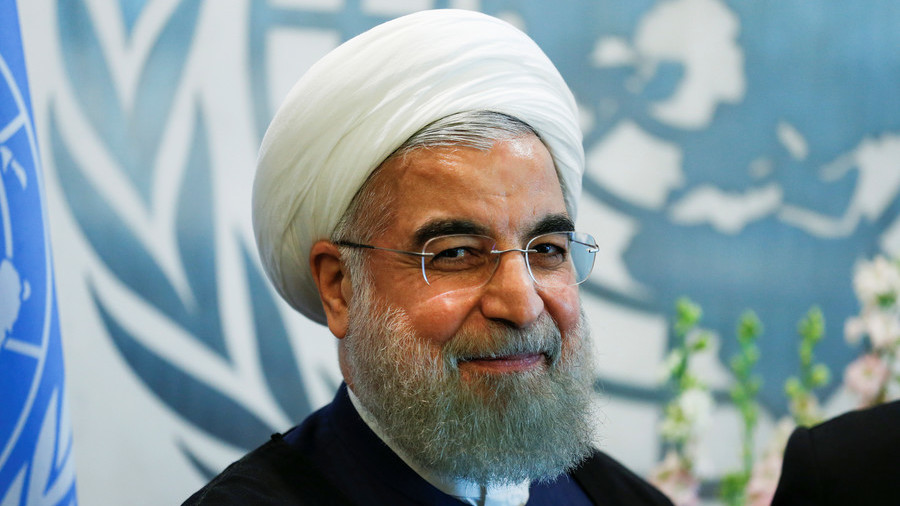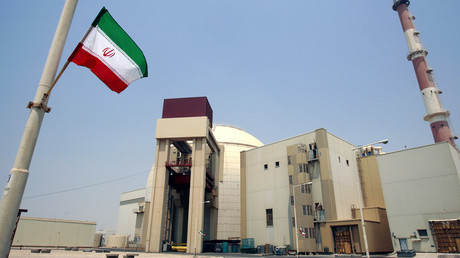Iran may stay in nuclear deal after US withdrawal if it's guaranteed by remaining parties

The Iranian president has hinted his country could continue to comply with the 2015 nuclear deal even if US President Donald Trump pulls out of it. It would take guarantees of compliance from the remaining signatories.
President Hassan Rouhani indicated on Monday that the disputed nuclear deal can still survive beyond a potential US withdrawal if the UK, France, Russia, China and Germany make up for Washington's exit.
"We have our own plan. Either what we demand from the JCPOA is fulfilled by the non-American [parties, and in that case] the US withdrawal will be the removal of a trouble, or we [will resort to] our legal and rational option… if what we expect is not fully accomplished," he explained, at a meeting in Iran's Mashhad, as cited by Tasnim News Agency.
Rouhani said it would be a "strategic mistake" on the US part to scrap the deal.
It was the first time Iran's leader outlined the conditions under which the deal could stay alive after a Trump withdrawal. Previous statements by Tehran officials all suggested that such a move would automatically mean the end of the accord.
Earlier the Iranian foreign minister's spokesman Bahram Qassemi said that leaving the deal "will be painful for the US and will end in remorse."
This step would deprive the US of all remaining credibility and "will result in further lack of the world's confidence in them," Qassemi said, as cited by IRNA.
Trump is to announce his decision with regards to the nuclear deal at 2pm local time [18:00 GMT] on Tuesday. Previously, he set a deadline of May 12 to either recertify the deal or reimpose the sanctions on Iran that had been lifted as part of the bargain, in return for Iran phasing out its nuclear program
Washington has been urging its European allies –Britain, France and Germany– to renegotiate the deal to include the Iranian missile program, which had never been a part of the initial agreement. Although Washington's allies in Europe have thrown their support behind the nuclear deal, they also seek to alleviate Washington's concerns by advocating for a new agreement to be reached with Iran that will cover its ballistic missile program and nuclear activities after 2025, when the present one expires.
Meanwhile, Israel's Prime Minister Benjamin Netanyahu last month claimed that, despite repeated confirmations of its compliance by the International Atomic Energy Agency (IAEA), Iran is in violation of the deal and runs a "clandestine nuclear weapons program." The allegations, unveiled during what appeared to be a well-rehearsed presentation, were squarely dismissed by Iran.


0 Comments:
Post a Comment
Subscribe to Post Comments [Atom]
<< Home